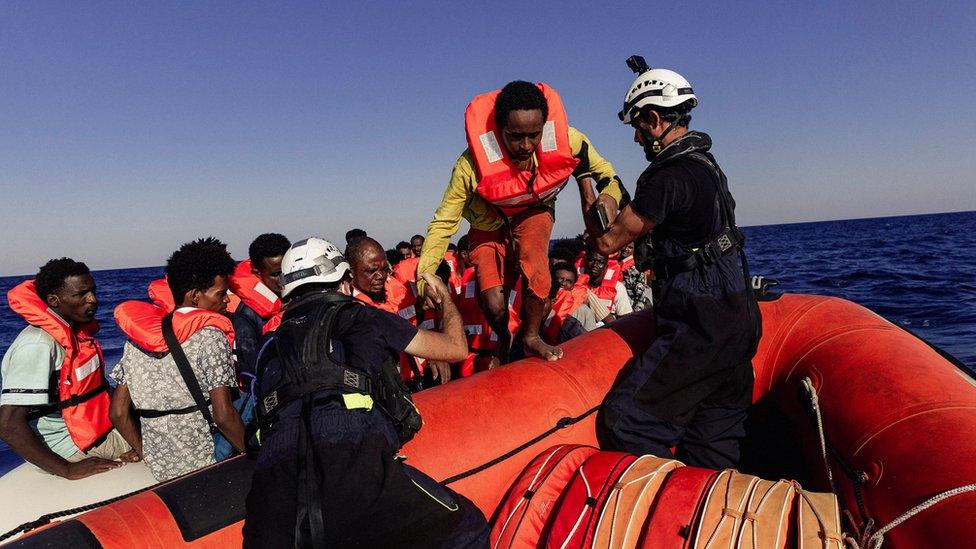Dreams of space that ended in shipwreck off Italy
- Published
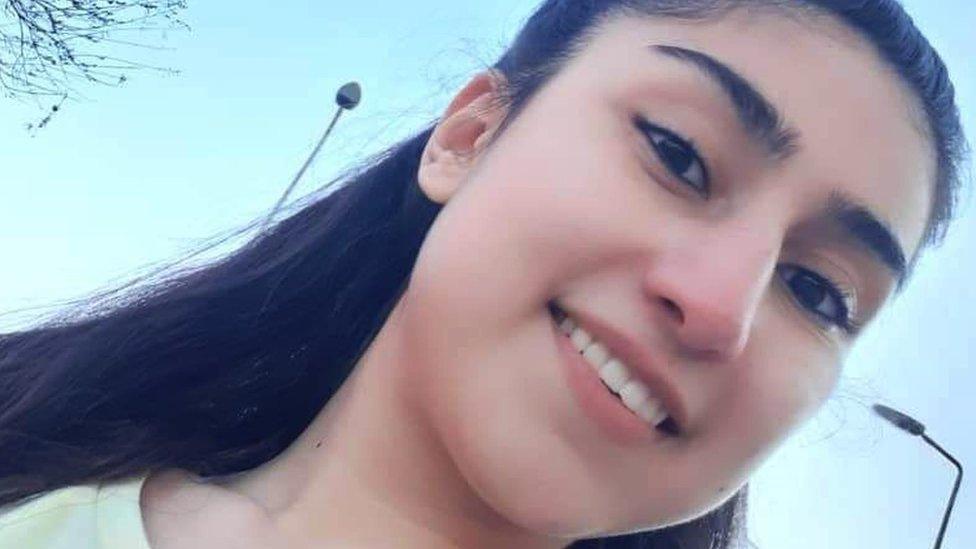
Maeda Hussaini wanted to follow her dreams despite all the dangers
Maeda Hussaini wanted to be an astronaut and had even written to America's space agency Nasa. It might seem out of reach for a 17-year-old Afghan girl - but the sky was the limit.
Even when the Taliban seized power in 2021 and her family fled to Iran, Maeda refused to give up on her dream. She decided to travel over land to Turkey and risk the sea crossing to Europe to continue her studies.
Her mother Mahtab was anxious - but Maeda eventually won her round.
"I told her, 'Go my daughter, may God protect you,'" says Mahtab. "She was capable."
Maeda spent four days at sea after the boat she boarded set off from Turkey on 22 February.
"Hello mum, I hope you're alright. I'm well and happy. I'm still in the boat. We will get off in 30 minutes," she said in her last voice message to Mahtab, who could hear the boat's engine and waves in the background.
After that, a final text: "My dear mum, I'm almost in Italy, getting off shortly, happy and healthy. Don't you worry."
Then came news the overcrowded migrant boat had broken up in rough seas within sight of the southern Italian coast at Crotone.
Of some 200 people thought to be on board, at least 86 died. Maeda's body was found nearly three weeks later - more are still missing.
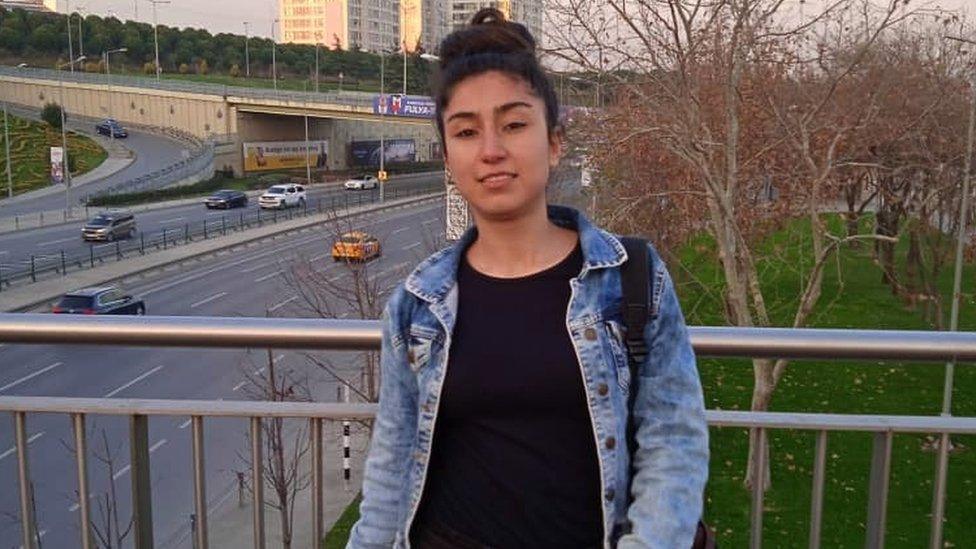
Maeda, pictured in Turkey, sought her mother's blessing before getting on the migrant boat to Italy
It's rare for young women to take such journeys alone because the risks are so high - but Mahtab says her eldest child was full of determination.
Seven months earlier Maeda had been shot in the leg as she crossed from Iran to Turkey, her family say. Who shot her is unclear - border guards on both sides are armed, as are the people smugglers.
But it didn't appear to deter Maeda - she spent 10 days with the bullet in her leg, fearing deportation if the authorities found she'd visited a doctor, before other migrants took her to a clinic to have it removed.
Maeda made a number of unsuccessful attempts to reach Europe, before taking the crossing to Crotone.
"I was worried about her and I asked her to come back to Iran," says Mahtab. "I told her, 'Aren't you tired of trying again and again to go abroad?'"
In 2022, Afghans accounted for 13% of all asylum requests in the 27-member European Union, Switzerland and Norway, according to official figures.
Turkey is the main transit point for Afghans trying to reach Europe. They either move up via the Balkans or try to cross by sea to reach countries like Italy, as Maeda did.

The risks are high. Monitoring groups say more than 20,000 people have died or gone missing at sea in the central Mediterranean since 2014.
Two survivors from the boat Maeda was on told the BBC it broke down shortly after leaving the Turkish coast - the smugglers then sent another boat and people transferred onto that.
Meraj, an Afghan who was on the boat, says the sailing was rough - but they were upbeat as they neared land. His real name is being withheld to protect his identity.
"Another vessel then approached us and turned its lights on our boat. Our captains panicked and tried to turn the boat around," he says.
"Our boat did one circle, then a second. On the third circle, it hit something hard and broke apart. Families and children were in the lower deck, men and single migrants were in the upper deck.
"I remember the boat filling with water, it reached my neck, then I smelled oil and fainted. I don't remember what happened next."
Meraj was washed ashore, one of 80 survivors. The fate of his relatives who were also on the boat is unknown.
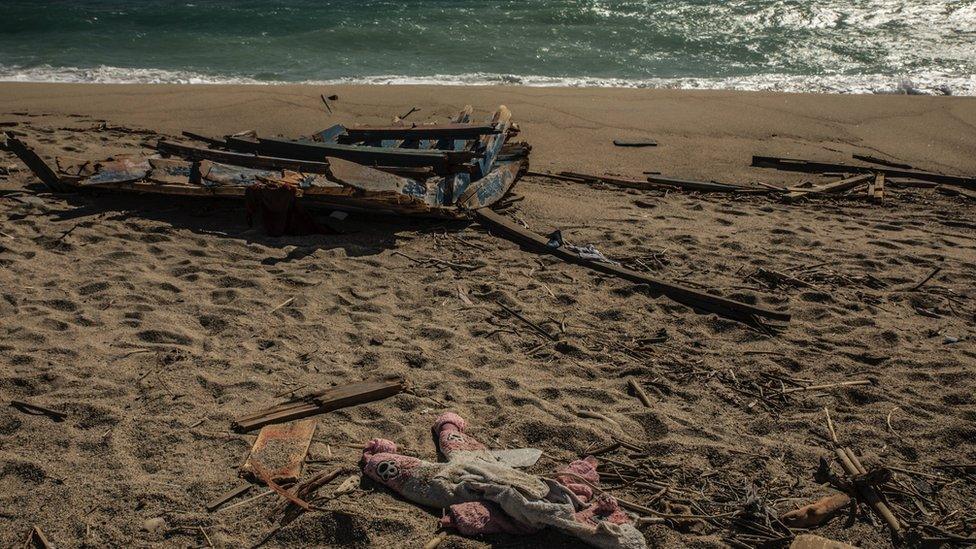
More than a dozen children, including a baby, were among the victims of the Crotone tragedy
The Italian authorities have arrested three people, a Turkish man and two Pakistanis believed to be the "captains" of the boat.
Police estimate each passenger paid $8,500 (£7,000) for a place on the vessel.
'I only found my brother's shoes'
As news of the shipwreck spread, families started arriving in southern Italy, hoping to find their missing relatives.
Laila Timory, 47, drove non-stop from Germany.
"I thought I'd finally see my brother after all these years."
Laila left Kunduz province in Afghanistan in 2015. She still remembers the brief farewell she had with her brother, Zabih, a government lawyer who feared the Taliban.
"We asked for forgiveness in case we didn't see each other again in the future."
Zabih Timory, 33, his wife Mina, 23, and their sons Haseeb, Arif and Akif, were all on the boat when it broke apart on 26 February.
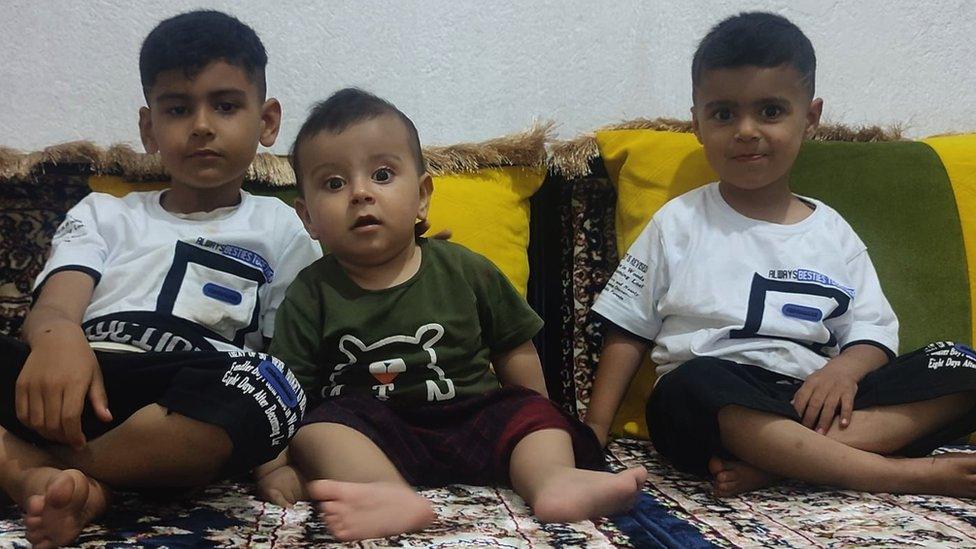
Only the body of 18-month-old Haseeb has been found. He is pictured between his brothers Akif (six) and Arif (four)
"When I arrived at the scene, the first thing I encountered was the dead body of my 18-month-old nephew Haseeb," Laila told the BBC.
"They [the Italian authorities] took me to a room and gave me photos to identify. Photos of the dead, photos of people in hospital and photos of survivors who are in the camp. But I couldn't see the rest of my family."
Laila then went to the beach to search for them.
"I couldn't just sit and wait, I saw debris from the boat, I saw clothes. I had a feeling that my brother could be buried in the sand, waiting for my help," she says.
"All I could find were his shoes. I later found a jumper and his wife's bag."
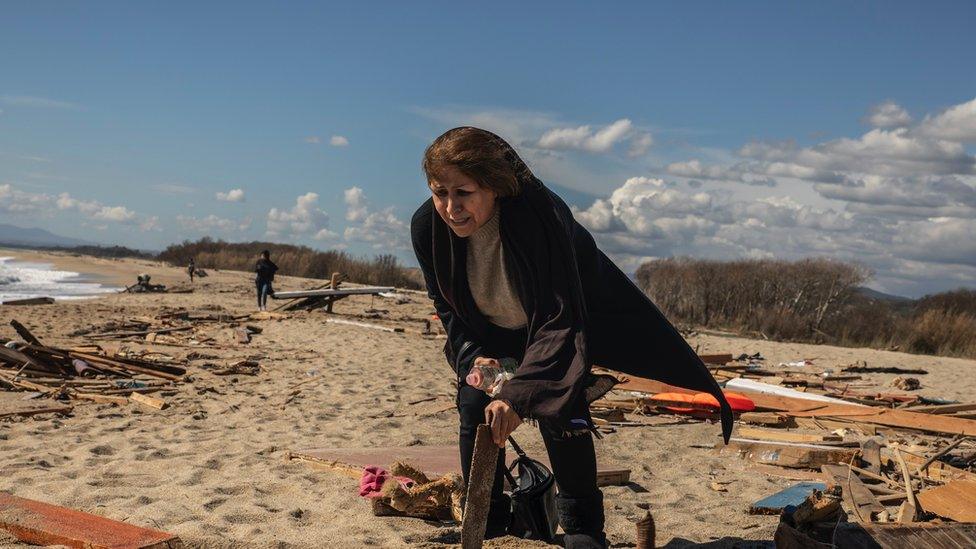
Laila Timory was forced to search the beach herself to find any belongings of her brother and his family
Laila and her daughter spent nearly a fortnight looking - by then the bodies of Mina and Akif had been found and transferred along with Haseeb's to Germany.
But Zabih and Arif are still missing. Laila's only hope is their bodies will eventually wash ashore.
"It's very difficult. We hear half the people on the boat drowned and are at the bottom of the sea. Some bodies can't be even recognised after being in the water all this time," she says.
"All we want is to find the bodies of our loved ones to send them home for burial so they can rest in peace."
Back in Iran, Maeda's parents spent weeks praying for good news. As Afghan refugees in Iran, they were unable to get a visa to travel to Italy to search for Maeda themselves.
While she waited, Mahtab didn't allow anyone to hold a funeral for her daughter or share their condolences.
By reaching Europe before she turned 18, Maeda had hoped she could get her parents and three younger siblings to join her as part of a family reunification scheme.
"She always said, 'Mum please don't marry me at a young age like yourself,'" Mahtab recalls.
"I have big dreams. I know my father is just an ordinary worker and he can't do much - so I have to go abroad to succeed."
Related topics
- Published2 March 2023
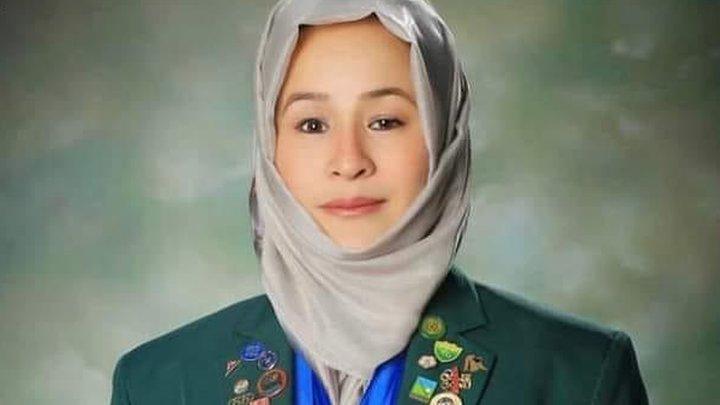
- Published27 February 2023
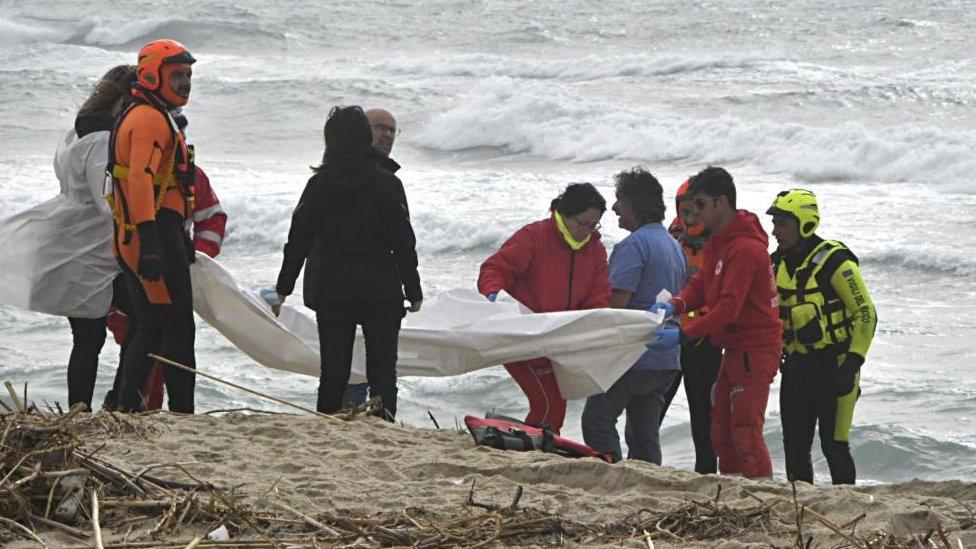
- Published24 July 2022
